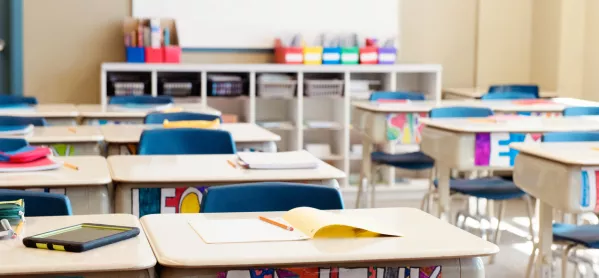Setting by ability widens gaps in self-confidence between students in the top and bottom sets, according to a new study.
Experts at UCL Institute of Education, Queen’s University Belfast and Lancaster University found that putting students into ability groupings or “sets” for mathematics widened gaps in their general self-confidence as learners.
The study of more than 9,000 12- to 13-year-old pupils in Year 8 found that students in the top mathematics set showed “significantly higher levels of self-confidence after two years” while students in the bottom set “show significantly lower self-confidence over time”.
Opinion: Ability groupings: will they still apply post-lockdown?
Quick read: Grouping primary pupils by ability is indefensible
Related: 4 questions you need to ask about ability grouping
The study said that the “growing gap exacerbates an unequal starting point” as students’ self-confidence was shown to correlate with the set they were placed in shortly after starting secondary school.
“As such, this is a deeply concerning finding. The trend is also shown for students’ results when they report on their general self-confidence in maths scores, showing that this impact on self-confidence extends beyond set subject,” the study says.
Professor Jeremy Hodgen of UCL Institute of Education said the study has “potentially important implications for social justice”, with the growing gap risking “cementing existing inequalities rather than dissipating them”.
“Low attainers are being ill-served in schools that apply setting, and low attainment groups are shown to be disproportionately populated by pupils from low socioeconomic backgrounds and from particular ethnic groups.
“Our results have important implications for interventions directed at addressing disadvantage in education,” she added.
The research was carried out in 139 UK secondary schools, monitoring cohorts from the beginning of Year 7 to the end of Year 8 and focused on their experience of English and maths.
For students placed in the top sets for English or maths, there was a “general trend” of higher self-confidence in the subject area.
Pupils also showed “a significantly lower self-confidence when placed in the bottom set in mathematics when compared with an average student in the middle set”.
“This trend in self-confidence remained for general self-confidence in mathematics and those in the top set in English after controlling for attainment level”, the report says.
In other cases, the trend was reduced, albeit not reversed in any case.
Dr Becky Taylor of the IOE said labels relating to ability classes impact children’s perception of themselves as learners and their feelings about their place within the school. She said it might impact on pupils’ dissociation with schooling and their perception of their future.
“The ‘ability set’ label snowballs as it builds momentum and impact via the various practices, understandings and behaviours on the part of the pupil, on teachers, parents, peers, and therefore the school and its practices,” she said.
The report said more research was needed to understand how self-confidence impacts children’s futures.
“We recognise that there may be other issues associated with bottom set groups that might also impede the development of self-confidence over time, such as absenteeism or exclusion - albeit it is worth noting that these may also be precipitated by designation to a bottom set group and the disassociation with schooling entailed,” Professor Hodgen concluded.





